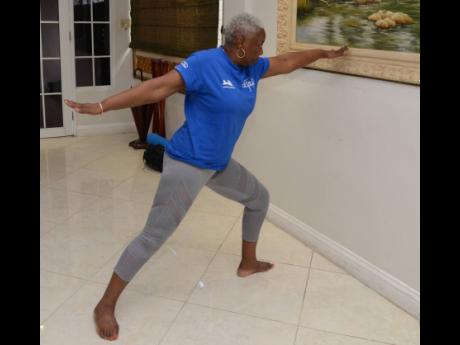You can prevent a stroke
Every year, October 29 is recognised as World Stroke Day. And in recognition of the health day, here are some facts from the experts about strokes that all adults must know.
WHAT IS IT?
A stroke is when a blood vessel that carries oxygen and nutrients to the brain is either blocked by a clot or bursts, therefore cutting off blood and/or oxygen supply to parts of the brain. (stroke.org)
There are various types of strokes, and depending on the part of the brain that is affected, the corresponding parts of the body that are controlled by that part of the brain may not work as they should.
WHAT ARE THE RISK FACTORS FOR STROKES?
Conditions such as high blood pressure, high cholesterol, diabetes, and irregular heartbeat (atrial fibrillation) all put people at increased risk for a stroke. In addition, smoking, excessive alcohol intake, obesity, and lack of exercise have been linked to strokes.
RECOGNISE THE SIGNS OF A STROKE
The World Stroke Organization uses the acronym FAST to identify the signs of a stroke.
- Face: drooping of the face.
- Arms: inability to raise both arms.
- Speech: slurred or slowed speech.
- Time: once these three things have been identified, time is of the essence; rush the person to a hospital.
Other signs include:
– A sudden, severe headache.
– Dizziness or loss of balance
– Numbness of the face, arm, or leg, especially on one side of the body.
– Sudden difficulty seeing in one or both eyes.
– Confusion or difficulty speaking.
WAYS TO PREVENT STROKES
- Manage and control conditions such as high blood pressure, diabetes, and cholesterol.
- Control blood sugar levels.
- Do not smoke.
- Eat healthily.
- Get the recommended amount of exercise for adults daily, 30 minutes.
AFTER A STROKE
- Although stroke is a disease of the brain, it can affect the entire body. A common disability that results from a stroke is complete paralysis on one side of the body, called hemiplegia. A related disability that is not as debilitating as paralysis is one-sided weakness or hemiparesis.
- Strokes may cause problems with thinking, awareness, attention, learning, judgement, and memory.
- Stroke survivors often have problems understanding or forming speech.
- A stroke can lead to emotional problems. Stroke patients may have difficulty controlling their emotions or may express inappropriate emotions. Many stroke patients experience depression.
- Stroke survivors may also experience numbness or strange sensations. The pain is often worse in the hands and feet and is made worse by movement and temperature changes, especially cold temperatures.
- Recurrent stroke is frequent; about 25 per cent of people who recover from their first stroke will have another within five years.
OTHER FACTS YOU NEED TO KNOW
- Stroke risk increases with age, but strokes can – and do – occur at any age.
- Patients who arrive at the emergency room within three hours of their first symptoms often have less disability three months after a stroke than those who received delayed care.
- About 87 per cent of all strokes are ischemic strokes, in which blood flow to the brain is blocked.
The World Stroke Organization suggests that up to 80 per cent of all strokes are preventable and that one in four persons worldwide will get a stroke in their lifetime; don’t be the one. Take heed of these stroke facts.



